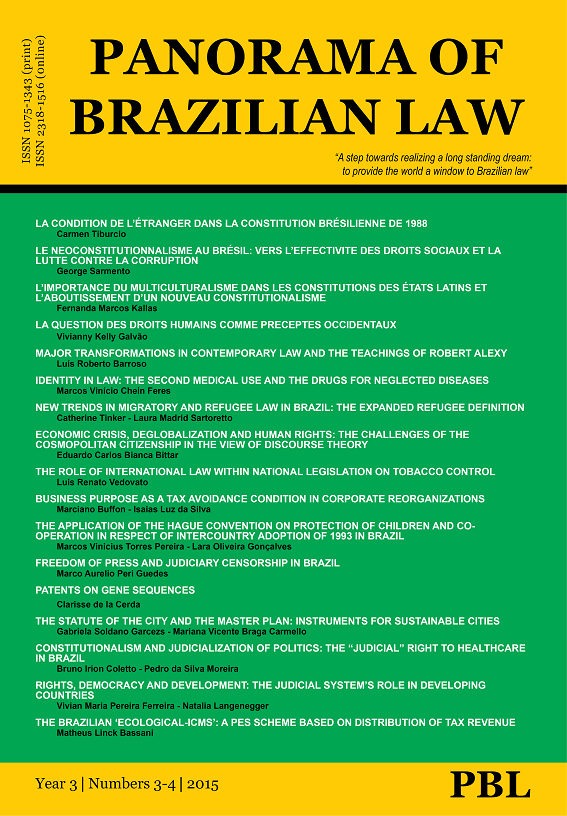CONSTITUTIONALISM AND JUDICIALIZATION OF POLITICS: THE “JUDICIAL” RIGHT TO HEALTHCARE IN BRAZIL
DOI:
https://doi.org/10.17768/pbl.y3.n3-4.p358-393Abstract
The right to healthcare in Brazil is seriously protected by the courts. Judicialization of everyday implementation of this public policy is a fact. One explanation may be provided by the way judges understand the effectiveness of this right. People hold subjective right to individualized healthcare benefits, and so they hold standing to sue the state in order to achieve it, regardless any consideration of public policies. Through an analysis of the jurisprudence on this issue, this paper aims to provide a critical understanding not just about what is actually happening in Brazilian courts regarding healthcare, but also to criticize it. The conclusion is that a “strong” conception of constitutionalism and fundamental rights may revel itself as “weak,” from the standpoint of general equality. Judicialization ends up empting the public debate, leading the task of solving the distribution of scarce resources to a “gowned aristocracy.”
Downloads
Published
How to Cite
Issue
Section
License
Panorama of Brazilian Law employs Open Journal Access policies.
Authors are fully and exclusively responsible for their submissions.
Authors who publish with this journal agree to the following terms:
- Authors retain copyright and grant the journal right of first publication with the work simultaneously licensed under a Creative Commons Attribution-NonCommercial-ShareAlike 4.0 International License that allows others to share the work on a non-comercial basis with an acknowledgement of the work's authorship and initial publication in this journal and indicating if any changes were made. If you remix, transform, or build upon the material, you must distribute your contributions under the same license as the original.
- Authors are able to enter into separate, additional contractual arrangements for the non-exclusive distribution of the journal's published version of the work (e.g., post it to an institutional repository or publish it in a book), with an acknowledgement of its initial publication in this journal.

